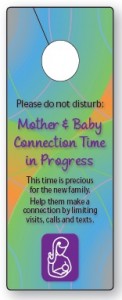 This is the 22nd in a series of posts on the Booby Traps, made possible by the generous support of Motherlove Herbal Company.
This is the 22nd in a series of posts on the Booby Traps, made possible by the generous support of Motherlove Herbal Company.
It’s postpartum day one for 29 nursing mothers and babies in an Ohio hospital who have agreed to participate in a study.
From 8:00 am to 8:00 pm, research assistants sit outside each room, counting the number of times the door is door is opened and someone enters - nurses, doctors, family, friends, food service, housekeeping, and anyone else - and keeping track of the duration of these interruptions as well as time spent alone. Research assistants count the number of phone calls the mother makes and receives as well. Each visitor is counted an an separate interruption, and partners are also counted when they entered the room.
Want to guess the average number of times mothers were interrupted by phone or in person? 54.
And what was the most common duration of time the mothers had alone with their babies? 1 minute.
The mothers were alone with their babies for an average of 24 times in the 12 hour period, and half of these episodes were 9 minutes or less. The average duration of a breastfeeding session was 20 minutes. This included a number of sessions that lasted zero minutes when a visitor entered and the baby was immediately removed from the breast.
Who were the people entering the room most frequently? The majority of the visits were from nurses and other care personnel, followed by the father and other visitors.
At the end of the day mothers were asked about their experiences (summarized by this La Leche League article):
1. How do you feel about the interaction and breastfeeding experiences with your baby today?
Typical responses: “They [breastfeeding sessions] were good, but it was hard having visitors; probably would have done it [breastfeeding] more. Tried to squeeze it in when visitors left.” “Not too many visitors, but the phone calls did make it harder to concentrate on the baby. The nurses’ visits helped because they showed me different techniques.”
2. Did you and your baby have enough quiet/uninterrupted time together?
Typical responses: “I had a very busy day and though I do feel I gave a lot of time and spent a lot of time together, I did feel very pressured.” “Wish we had more [alone time]. Both baby and myself were tired and I wanted to sleep with her. But every time I tried, we got interrupted.” “I felt like someone was constantly interrupting us and when we were able to breastfeed I felt rushed and worried that someone else would be coming in soon.”
 Of course, I am not suggesting that all interruptions are bad for breastfeeding. Some are clearly helpful to breastfeeding, like a visit from a lactation consultant, and having a partner and other supportive family and friends around can help, too.
Of course, I am not suggesting that all interruptions are bad for breastfeeding. Some are clearly helpful to breastfeeding, like a visit from a lactation consultant, and having a partner and other supportive family and friends around can help, too.
But look what happened in a 2010 study when a simple intervention was tried: hanging a “do not disturb” sign on the door when a mother was feeding her baby (one example of such a sign is above, from ILCA).
The number of interruptions to was significantly less in the ‘sign’ group than in the ‘no sign’ group. And 95% of the ‘sign’ mothers strongly agreed with the statement, “My breastfeeding sessions were successful, vs. 67% of the mothers who had no sign on the door. No difference was noted regarding the number of breastfeeding sessions, total minutes of breastfeeding sessions, or percentage of infant weight loss at day 2 of life.
Another interesting example comes from a number of Boston-area hospitals which, in the course of working toward becoming Baby Friendly, have are trying to “bundle” education about different topics together so that the number of interruptions is decreased. They’ve also tried to stop taking vital signs at midnight and at other times when the mother or aby is sleeping. This requires cultural and logistical changes, but it can be done.
Again, I am not saying that mothers shouldn’t have visitors or that hospital staff who have important business in the rooms should be banned from entering. I also want to acknowledge that there are interesting cultural questions here - among some families having lots of family around all the time is the normal and expected thing, and restricting visitation might actually make breastfeeding more challenging.
What I am saying is that the near constant stream of interruptions can make getting started with breastfeeding difficult, and that some thought should be given to prioritizing some privacy if mothers need it to make breastfeeding work. Yes, it might mean some inconvenience to hospital staff at first, but the same could be said about a lot of things which are now the standard of care, and which result in better breastfeeding outcomes.
For now, you may want to write in a request for privacy while feeding into your birth plan, talk with your partner about politely escorting family to the cafeteria at times, and maybe even making your own privacy sign.
Was your hospital room more like Grand Central Station? Did it have any impact on your breastfeeding experience in the hospital?



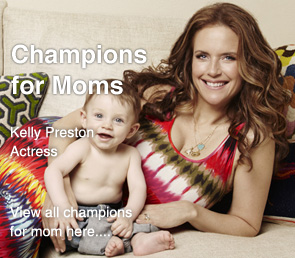
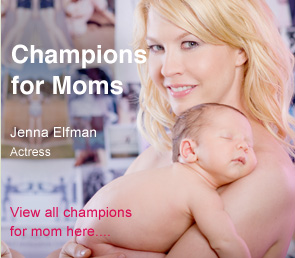

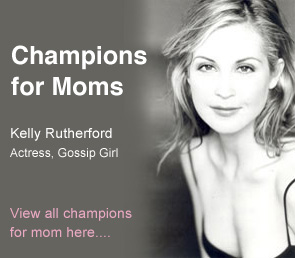
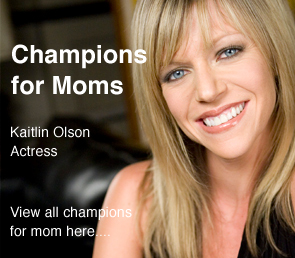
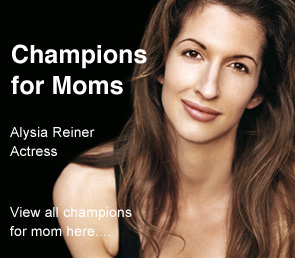
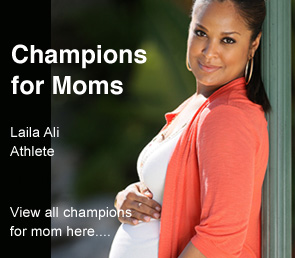
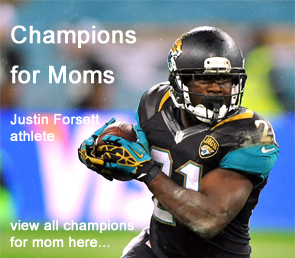

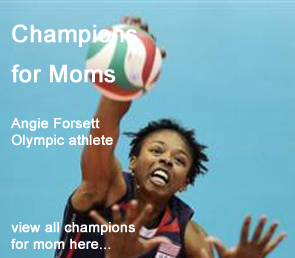


This is something I talk to my soon-to-be moms all of the time in my Breastfeeding 101 class. My son was the first grandchild born on both sides and he was treated like ‘Simba’ up on the mountain top when he was born. My hospital room was like Grand Central, as was my home for the first 10 days of his life. It took my a good 6 weeks to recover from acting as hostess for those first 10 days. Breastfeeding also got off to a rocky start b/c I was NEVER the one holding my son. Next time, my hubby acted as a ‘bouncer’ and everything went much more smoothly. Check out my blog post on this topic at: http://sdbfc.com/blog/2011/9/28/5-ways-to-get-rid-of-postpartum-visitors-without-offending-a.html
We had the Grand Central Station scenario after the births of my first and second children. It was so bad after the birth of my second that I ended up in hysterical tears, and the midwife put a sign on my door that no one could enter without clearing it with her first. When the midwives couldn’t promise me peace, and uninterrupted time with my third, I switched to a homebirth, and never looked back. I’ve now had 3 homebirths, and breastfeeding initiation was SO much easier!
I wrote about this very thing for the parenting site Kveller.com
http://www.kveller.com/blog/parenting/in-a-place-far-far-from-disneyland/
We didn’t have a lot of visitors when I was in the hospital for the birth of our daughter. What family did come by I did not let affect my feeding of our daughter. However, the constant day and night interruptions by the nurses, techs and doctors did interfere with what little sleep I was getting, which then led to me having less patience and focus on establishing the nursing relationship. And as noted in the article above, not all the interruptions were negative, we did get visited by the lactation consultant daily. Plus, I don’t know how many of the visits were ‘extras’ due to our daughter being a late term preemie.
What I do know is that we have decided that for the next baby, we will still have her in the hospital (we live too far from a hospital to feel comfortable with a home birth) and check out as soon as we both are stable. I want to recover at home where I am comfortable and where my husband can manage the flow of visitors.
Ugh this is what happened to me. My husband was welcome of course and my parents were super respectful when I was trying to nurse and would step out of the room but the constant barrage of hospital personnel was unbelievable. My son had latching difficulties and the IBCLC was trying to help and we were continuously interrupted. I could tell that she was even losing her patience. I finally lost it on my poor nurse (who was also part of the problem) and after that I barely saw a soul until we checked out. I made sure to fill out my hospital survey and include a suggestion for less interruptions.
I had a home birth for my second son and restricted all visitors for the few days. Afterwards, I would only allow short visits. Longer for grandparents as they helped out a lot at home with cleaning, etc. I think it’s so important for mom to have plenty of alone time with baby. Not only to help with sucessful breastfeeding but simply for mom to get to know her new child and get rest.
I plan to check out of hospital early (they recommend you stay 3-5 days - I’ll be gone within 1 if I can) because of the interruptions. I actually found that catering was the worst; 5 times a day they would bang (literally) open the door and interrupt us. The final straw came when they barged through a big DO NO DISTURB sign placed up by the midwives - it was the first time in 72hrs that I had managed to get to sleep after giving birth. The horrible woman banged the door open and shouted ‘BREAKFAST!’. I woke with such a fright that I couldn’t get back to sleep, my heart was pounding in my chest. It was completely unnecessary and done on purpose. They could have left the tray outside, or entered the room quietly and left the tray. The woman later confronted me about ‘complaining about her’ when all I had done was explain to the midwife why I wasn’t sleeping yet again. It didn’t get any better after that. I didn’t get any rest or time alone with bub until we got home. I had all sorts of feeding issues and I attribute most of them to interruptions - they caused reduced bonding time, reduced feeding time, and reduced rest times.